Simon Francis on Bournemouth's Premier League rise, why Eddie Howe is England class and being club confidant
Exclusive: The Cherries captain talks to The Independent about reaching the pinnacle from dwelling in the pits of League Two
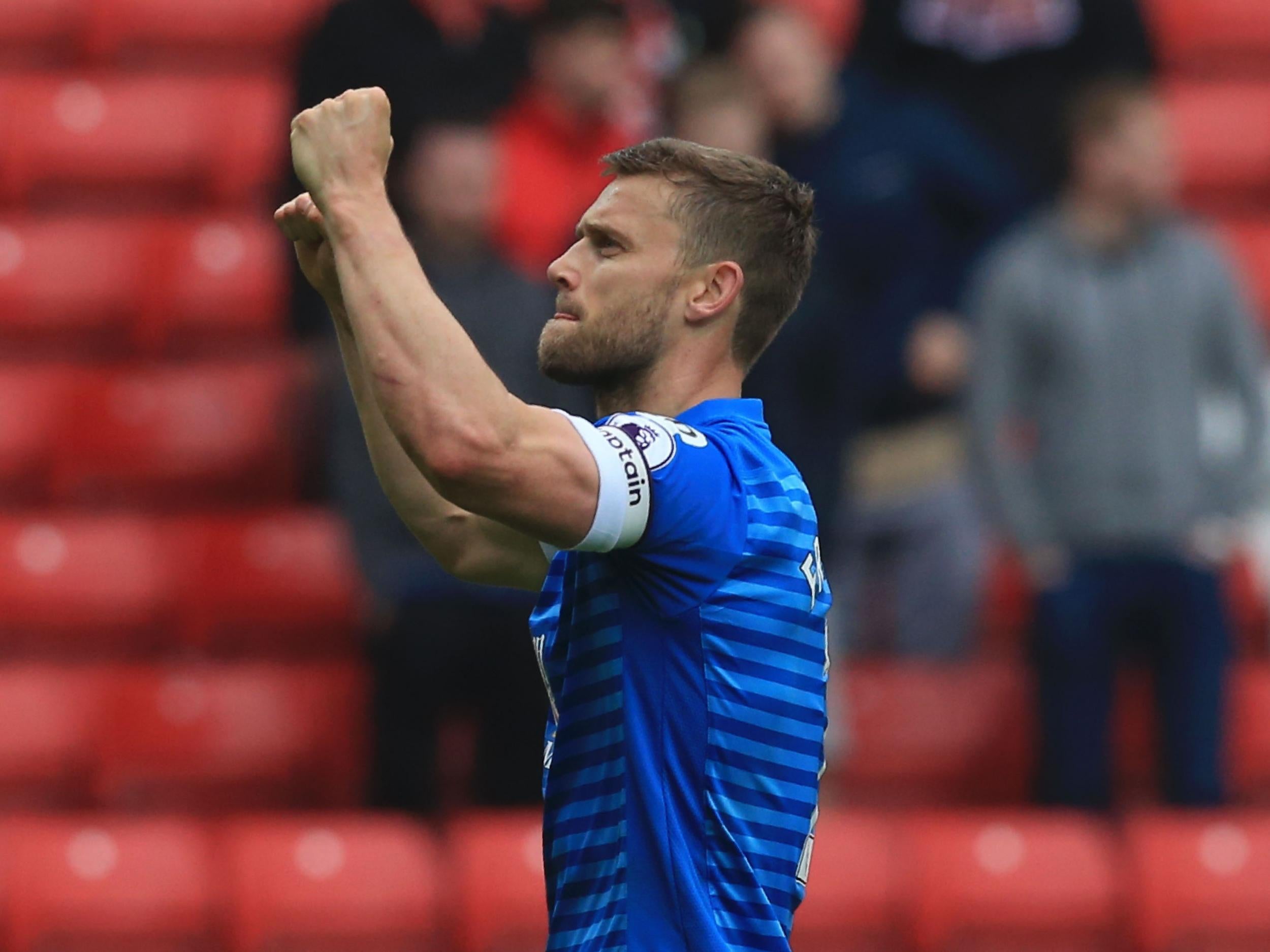
“I would have loved to come through a Premier League academy and played in the top flight for the last 10 years; I think every player would say the same,” says Simon Francis. “But I was different. It’s the fairytale story that took over Bournemouth, not just me but other players as well. If I could swap that story for 10 years in the Premier League I'd do it in a heartbeat, but this way is the stuff dreams are made of.”
During a summer in which the pathways from Premier League academies into first teams has become a topic de rigueur following England’s underage success, Francis is the poster boy of an altogether different route. In 2005 he was 21 and playing on loan from Sheffield United at Grimsby Town in League Two. In 2011, he was 26 and had been frozen out of the first team at League One Charlton Athletic, loaned out to Bournemouth to help out his mate Lee Bradbury. In 2017, Francis is a Premier League captain.
As Francis himself concedes, it has been a circuitous route to the top. He was released at the age of 16 by Notts County having already been rejected by Nottingham Forest, but was plucked out of a college course after being scouted by Bradford City. Thrust into the first team at the age of 17 and then signed by Sheffield United after rejecting a move to Sunderland, Francis thought his star was on the rise. He would eventually end up at Southend in 2006 but suffer immediate relegation to the third tier. Six years later, Francis was still in League One.
“For a young lad it was everything I ever wanted, coming out of college life into the world of professional football,” he says. “It just took a couple of bad injuries and things turned for the worse. I made some bad decisions off the field that probably went against me and there were things I do regret doing.
“You just have to reflect on those things and how they have shaped you as a player and as a person. Those hard times had to change me, because I had no choice. I would have dropped out of the Football League if I hadn't got my head straight then.
“It's just a crazy, whirlwind set of events. I joined Bournemouth thinking it was a step down from Charlton to gets some games and do my mate a favour, but I was at the wrong end of the football spectrum. I certainly had thoughts that I'd never make it here. I don't mind admitting that.”
If the vision of professional football for the thousands of youngsters hoping to make the grade is of endless wealth and celebrity lifestyle, Francis has lived the very different reality. In an interview with The Times’ George Caulkin, Bournemouth teammate Steve Cook recalled being unsure if he could afford to fill his car with petrol to get to training. Francis remembers the short-term concerns, but also the more longer-term worries of life as a lower-league footballer.
“I was at Southend at 24 and 25, and I was already having to think about what comes after my career and having to work because you weren't earning enough to be able not to. You look at the Premier League and those who have been there for a while, if they've managed their money well, won't have to work again in their lives. I never had that.
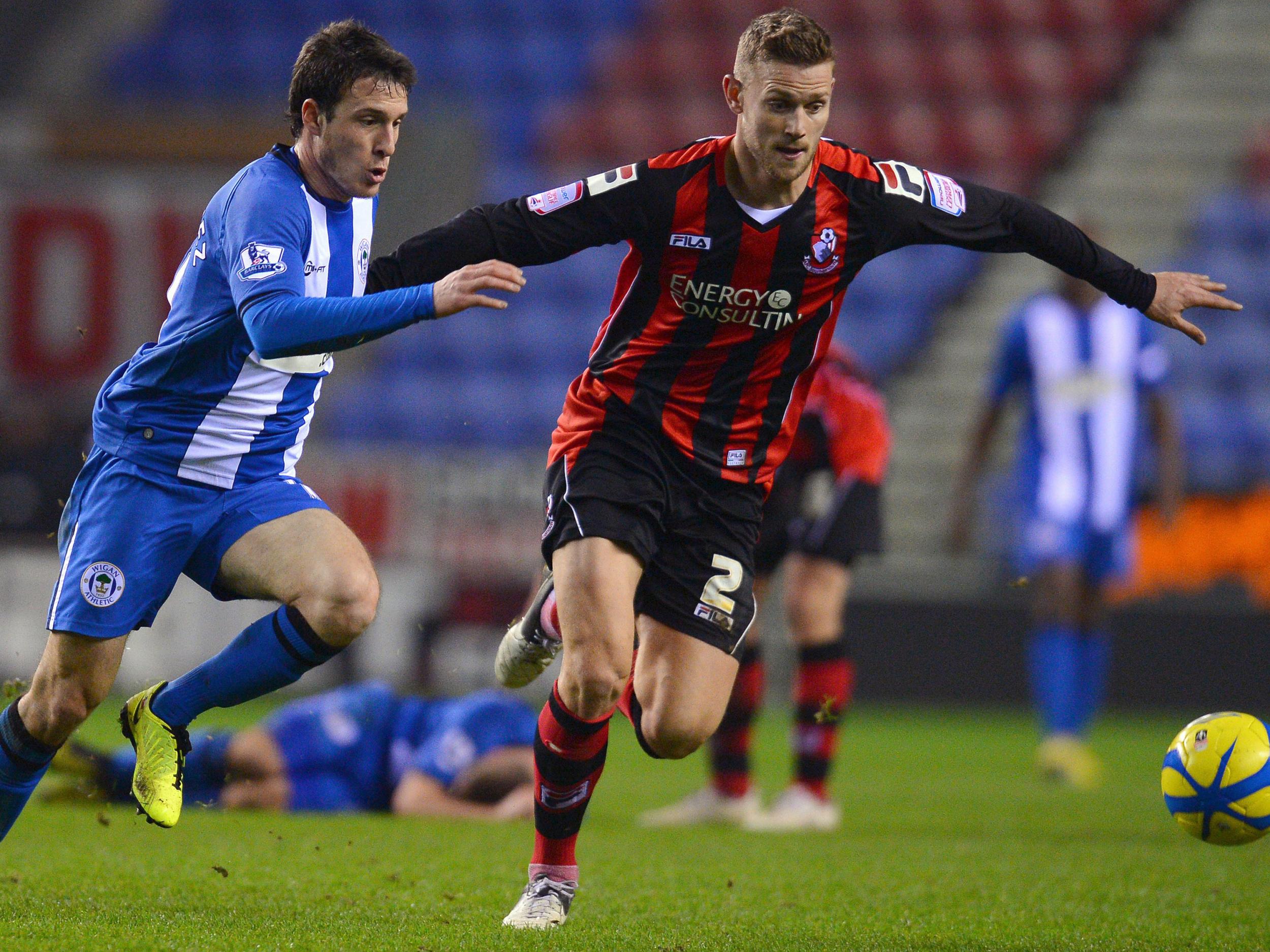
“The Premier League came late for me, and the financial rewards are brilliant, because it gives me more options. But I'll never forget where I came from and the teams that I played for before. That drives you on. That motivates you to succeed.”
Yet this unlikely shared Bournemouth dream came true. Having joined the club on a permanent deal in January 2012, Francis was named Player of the Year the following season as Bournemouth gained promotion to the Championship. In 2014/15, when they gained a second promotion in three seasons, no defender created more chances or made more assists in the Championship. Only one made more tackles too.
If there were doubts about Francis and Bournemouth’s ability to stay afloat in the Premier League’s pool of sharks, supporters are now doing joyful handstands in the deep end. Bournemouth survived relegation in 2015/16 and finished ninth last season. They have now improved their league position year on year for five successive seasons. This is the club who ranked 20th out of 20 in terms of revenue and 19th for wage bill according to the latest figures.
What is most remarkable about Bournemouth’s Premier League consolidation is the continuity in the playing staff. A list of the eight players who started the most games in the League One promotion campaign of 2012/13 includes Steve Cook, Harry Arter, Charlie Daniels and Francis. All four of those made the same list in 2016/17. It is rare for one lower-league player to flourish in the top flight after such a rapid rise, but four together in the same team?
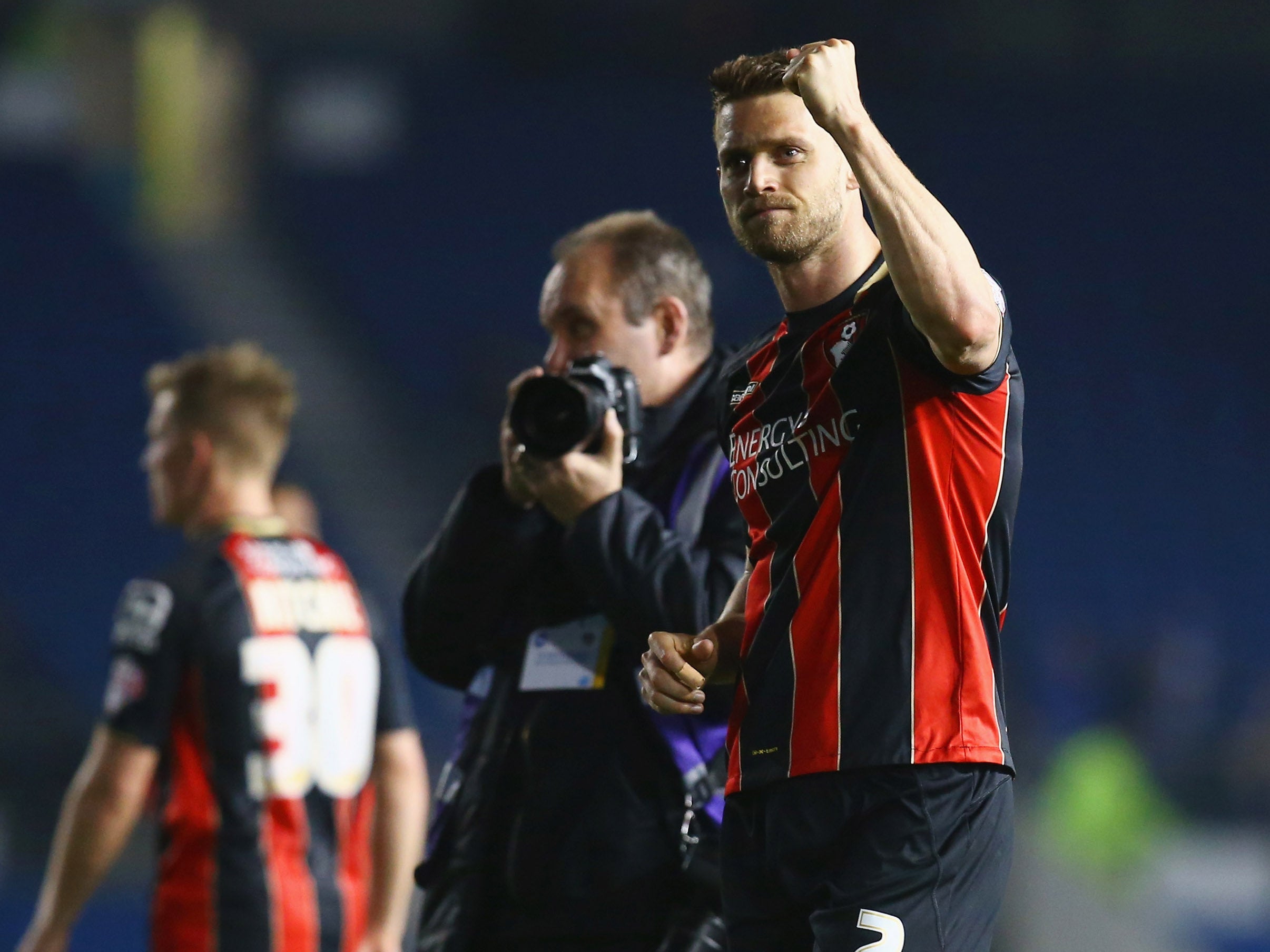
At the heart of this consistency is Francis, who has transformed from loan player to captain and right-back to central defender, now equally capable of doing both. Since August 2012, the start of his first full season at Dean Court, Francis has started 201 of Bournemouth’s 214 league matches in three different divisions. It is a truly remarkable achievement.
“My confidence is sky-high now, but of course there are times when you wonder whether you can make it at this level,” Francis says. “I'd have loved to make the Premier League earlier in my career, five or six years ago, but for it to come at 30 years old I'd still obviously have taken that. You just have to take the chance with both hands.” There is no doubt that Francis has done that.
While Francis is proud of his and Bournemouth’s rise through the divisions, he is keen to stress that none of this success could have been realised without their inspirational manager. There is nobody connected with the club, Francis says, who is not indebted to Eddie Howe.
“I've never come across anyone who is so intent on improving players individually, with both his man-management and his coaching. He comes in early and he leaves late, and if you go to him and say you want to work on something he'll stay there until you feel you have improved. And he'll do that with everyone.
“Without a doubt he is the best English manager. I think he would an excellent job with England, and that’s no disrespect to Gareth Southgate. Of course I don't want Eddie to leave Bournemouth, but one day I think without doubt he will be England manager. But he’s so meticulous and obsessed with working in the game every day, I can’t see it happening for a while yet.”
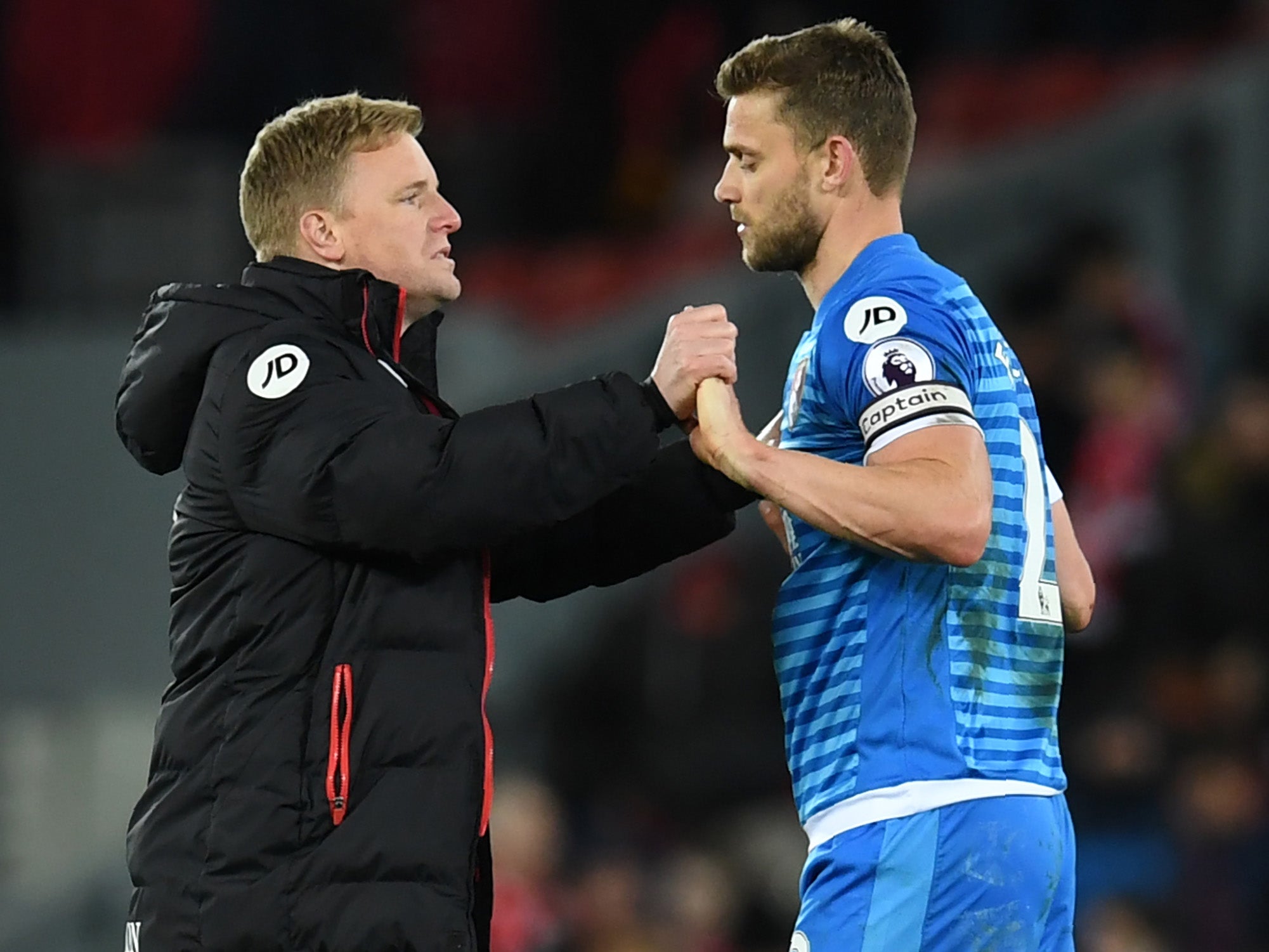
If making the grade in the Premier League when the wrong side of 30 is Francis’ finest achievement, he considers being named club captain of a Premier League team as his greatest honour. Having covered for Tommy Elphick when he was injured in 2015/16 Francis knew the call was likely, but he is still at his most animated when talking of what the role means.
“I said to all my family and friends that I desperately wanted to be club captain, so when he called me in in preseason to tell me, I was so happy. It's only when I retire that I'll look back on just how proud this has made me, but it is an honour to lead out every single one of those players every week. It's the best dressing room and camaraderie I’ve ever been involved in. To be the captain of them is something incredible.”
To most within in the game, being a captain is viewed as an on-field role. You shake hands, call the toss, choose the ends and speak to the referee during the game. You get your team up when they are down and celebrate with them when times are good.
Yet Francis is keen to talk about a different side to club captaincy, one that is perhaps easily overlooked. As well as a leader, Francis is a confidant of the players and the eyes and ears of the manager. Most importantly, he is the person the players go to if they have any issue or problem. Rather than on the pitch, Francis sees the vast majority of his role taking place away from it.
“It’s huge,” he says. “Until I got named I didn't quite realise how big the role was. If there is ever an issue they will come to me. It means you have to put the club and the other players first and foremost above yourself, whereas before you can maybe think more about your own game.
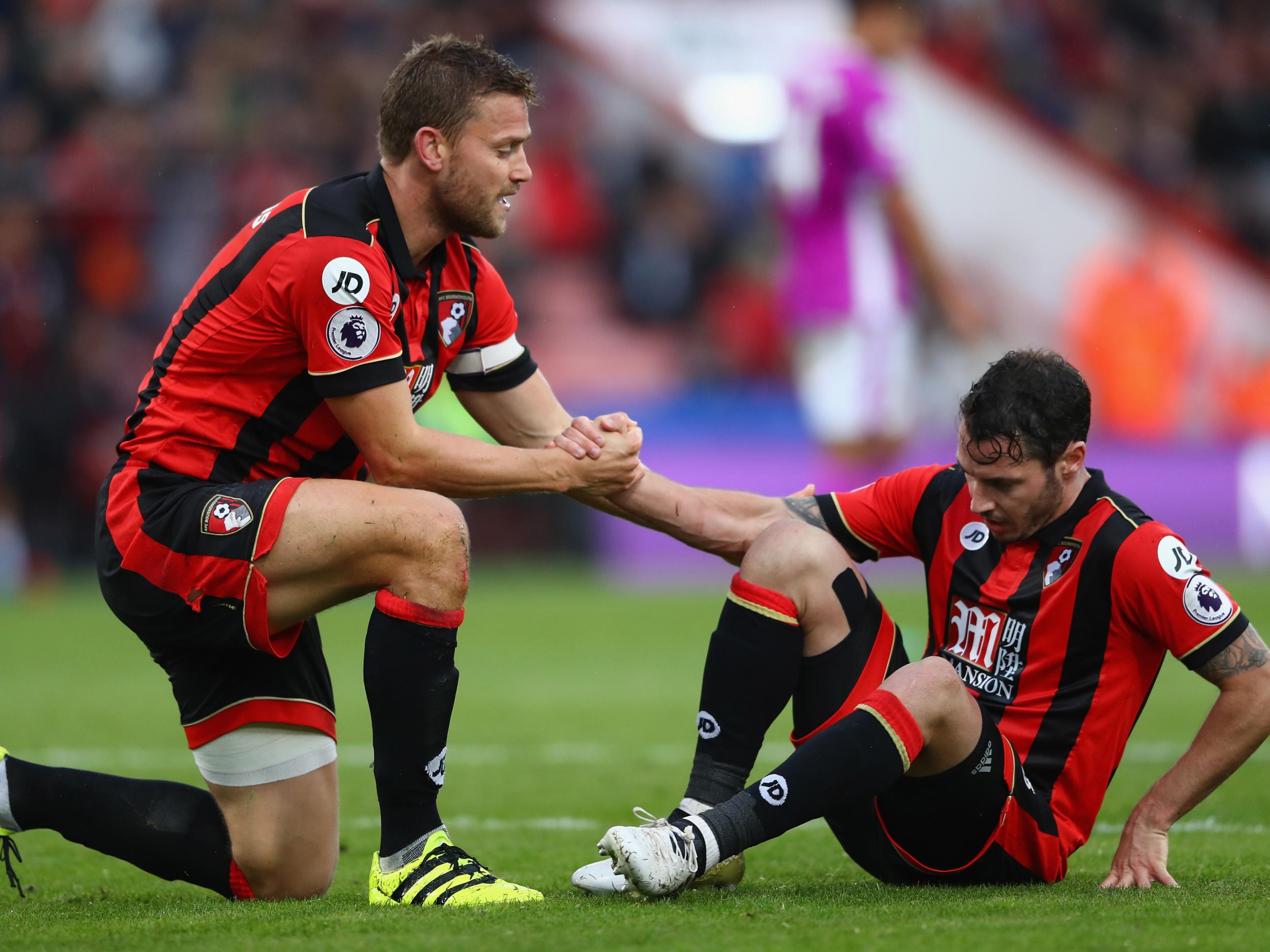
“I try to make new players welcome by giving them a call and having a chat with them. It's about letting people know that if they need anything, you are the person to go to. You have to be approachable and be able to joke with them, but at the same time, you have to be serious. You are an extension of the manager in the changing room. That's my role now.
That caring, personal side of club captaincy holds particular resonance at Bournemouth, a club touched by tragedy in its recent past. In December 2015, midfielder Harry Arter and his girlfriend’s baby was stillborn. It was an event that rocked Arter’s life and affected all at Bournemouth. Francis was no different. He and Arter are close friends, as are their partners. It was in those moments that teammates become friends.
“I can’t speak for Harry, but I'm sure that will go down as the worst days, weeks and months of his life,” Francis says. “I just wanted to be there for him. I remember the day really clearly because it was the day of the Manchester United game. We were all round at his house and we had to clear baby things out of the bedroom. It was a devastating time for them as a couple and for us as a club.
“That night against Manchester United, we could have played against anyone and got a result [Arter played and Bournemouth won 2-1]. We wanted to do it for Harry. It was a team effort getting behind him, and it's something I’ll never forget from those players. What’s brilliant is how Harry has turned that around, told his story and set up the charity to help out other couples. The silver lining is that they now have little Raine, who's doing very well. It touched the whole nation.”
It is in these moments that you truly understand how powerful the togetherness is at Bournemouth. This is a family club, a reference to both its size in comparison with its Premier League peers but also the strong internal relationships that have formed the basis of their continued rise. As captain of a club where ambitions are forward-thinking but traditions stay strong, Francis’ duty is to harness the potential power of such a tight-knit group. He feels that every day.
“All the players are my friends,” Francis says. “The team spirit is such that we are a tight unit, so having to tell them something they are doing wrong or the way they should be behaving, it’s hard. But that's something I have to do. Bournemouth is a family club and a club that does a lot for the community, so we have a lot of responsibilities. If I can be responsible for that and for the players, I will be the right leader.”
Join our commenting forum
Join thought-provoking conversations, follow other Independent readers and see their replies
Comments
Bookmark popover
Removed from bookmarks